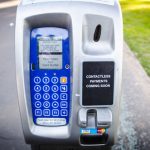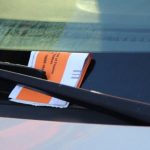Parking Inspectors Given the Power to Issue Demerit Points

The NSW government has given parking inspectors the power to issue demerit points for certain parking offences, in addition to the fines that apply to those offences.
The move has led to fierce debate about whether council rangers should be able to wield such powers, and whether illegal parking should attract demerit points at all.
Which parking offences attract demerit points?
The parking offences which come with demerit points are:
Stopping in or near an intersection
Rule 170(1) of the Road Rules 2014 (NSW) prohibits motorists from stopping in an intersection unless:
- Permitted to do so by other road rules, or
- It is a T-intersection without traffic lights and the driver stops along the continuous side of the continuing road at the intersection.
The offence attracts a fine of $337 and 2 demerit points.
If the driver elects to contest the penalty notice in court, the maximum fine increases to $2,200.
The same fine, demerit points and maximum court-imposed penalty apply to the following offences:
Stopping within 20 metres of an intersection with traffic lights
Rule 170(2) provides that ‘A driver must not stop on a road within 20 metres from the nearest point of an intersecting road at an intersection with traffic lights, unless the driver stops at a place on a length of road, or in an area, to which a parking control sign applies and the driver is permitted to’ do so.
Stopping within 10 metres of an intersection without traffic lights
Rule 170(3) prohibits motorists from stopping within 10 metres from the nearest point of an intersecting road which does not have traffic lights, unless the driver stops:
(a) The driver stops a place on a length of road, or in an area, to which a parking control sign applies and the driver is permitted to stop at that place, or
(b) It is a T-intersection without traffic lights and the driver stops along the continuous side of the continuing road at the intersection.
Stopping on or near a children’s crossing
Rule 171(1) states that ‘A driver must not stop on a children’s crossing, or on the road within 20 metres before the crossing and 10 metres after the crossing, unless the driver stops at a place on a length of road, or in an area, to which a parking control sign applies and the driver is permitted to stop at that place’ by other road rules.
Rule 172(1) applies the same rule to pedestrian crossings, 173(1) applies it to marked foot crossings and 174(1) applies it to bicycle crossing lights.
Other parking offences which incur demerit points are:
Stopping on or near a level crossing
Rule 175(1) prescribes a fine of $337, 1 demerit point and a maximum court-imposed fine of $2,200 for a driver who ‘stop[s] on a level crossing, or on a road within 20 metres before the nearest rail or track to the driver approaching the crossing and 20 metres after the nearest rail or track to the driver leaving the crossing, unless the driver stops at a place on a length of road, or in an area, to which a parking control sign applies and the driver is permitted to stop’ by the road rules.
Stopping in a disabled parking area without a permit
Rule 203(1) states that a driver must not stop in a parking area for people with disabilities unless:
(a) the driver’s vehicle displays a current parking permit for people with disabilities, and
(b) the driver complies with the conditions of use of the permit.
A fine of $561, 1 demerit point or a court-imposed maximum penalty of $2,200 applies to this offence.
Standing vehicle in a disabled parking area without a permit
And section 650(1) of the Local Government Act 1993 also prescribes a fine of $561 and 1 demerit point for parking in a ‘free parking area’ which is a disabled parking area, ‘otherwise than as permitted by a notice or sign erected by the council’.
The maximum fine if the case is contested in court is $1,100.
A table of fines applicable to parking offences is found on the RMS website.
Public reaction
Motorists took to social media to vent their frustrations about the new powers, expressing the view that demerit points should be reserved for moving traffic violations such as speeding and running red lights, and foreshadowing a rise in tensions between inspectors and members of the public.
However, Bernard Carlon from the Centre of Road Safety says the new rules only punish the worst parking violations, and could make our roads safer and more efficient by deterring blockages.
Going to court for a traffic offence?
If you are going to court for a traffic offence, call or email Sydney Criminal Lawyers anytime to arrange a free first consultation with an experienced, specialist traffic lawyer who will accurately advise you of your options, the best way forward, and fight for the optimal outcome in your specific situation.






